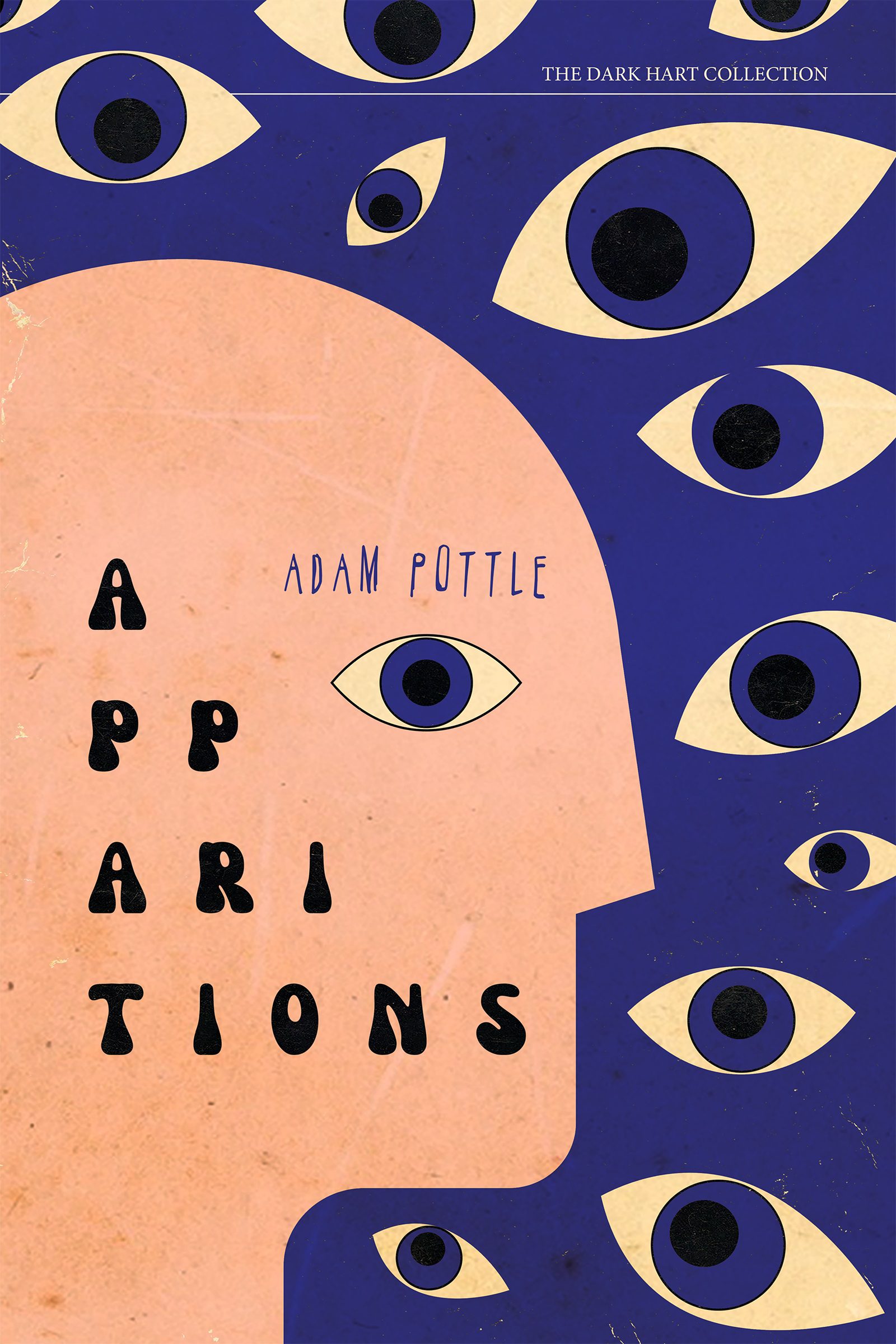
Synopsis
Violence was his first language.
A nameless Deaf teen escapes his father’s basement after years of imprisonment. Bloody, alone, and without language, he stumbles through the Saskatchewan prairies and lands in a psychiatric facility, where he meets Felix, another Deaf teen. Felix—cunning and ambitious—teaches the nameless narrator Sign Language and begins to mold the abused teen’s mind. But mold into what?
Review
In one of the most emotionally devastating reads of this year (possibly ever), Apparitions by Adam Pottle depicts the life of an unnamed (for most of the book) narrator as he navigates a life of abuse, mistreatment, and neglect. Suffering at the hands of his father first, the narrator is a Deaf child who is imprisoned in a basement with minimal interaction, minimal care, and no education. The world the narrator knows is dark and cruel, filled with exchanges of violence and depravity. After a failed murder attempt, the narrator escapes into the wilderness and the grip of death only to realize he has no way to fend for himself. Wandering into town lands him in a psychiatric hospital and into the hands of Felix, another Deaf teen. However, Felix’s motivations and treatment towards the narrator are seemingly well-intentioned until we are made aware of the underlying reasons for his presence in the facility. From there, the narrator forms a bond with Felix, for better or for worse, that allows him to further learn the rules of the world around him and how to communicate through Sign Language. The power of selective education and ulterior motives fuels what comes to be an unhealthy attachment between the two boys resulting in a devastating set of events.
Regardless of the depths of abuse and depravity Pottle explores, this book contains some of the most beautiful writing I have ever encountered. During my reading experience, I re-read multiple lines to simply appreciate the ways in which Pottle explained the narrator’s emotions, mindset, and understanding of the world around him. The manner in which simple, mundane actions are interpreted by the narrator is tragically captivating. His understanding of the impact of words and how he physically feels someone’s breath leaving their body as they speak are instances of his specific worldview that I could never understand without reading a book like this.
“The men here yell all the time. They yell so hard they almost throw out their backs or shove their eyeballs out of their heads. It’s strange that the air doesn’t bend when they yell or that the temperature doesn’t rise or that their words have no edges. With that much effort you’d think there’d be physical evidence of their words. You’d think that people’s words would soothe sores or splash bruises on their skin or crush their bones into pieces. I’ve seen people crumple under the weight of words. I’ve also seen words brighten people’s eyes and hook the corners of their mouths into the widest grins.”
Before reading Apparitions, I had never fully considered the way the outside world looks to someone who cannot hear sounds the same way that I could or the implications of how speech may visually appear. There is a heavy weight to be found in understanding the power of words, heard or seen. A beauty can be found in the positive light that calming, healing words are spoken with an appearance of love and care. Conversely, there is a real sense of dread in the malice present behind ugly words, words that carry abuse and ill-intent. Pottle does not shy away from the horrors of these ugly interactions.
Perhaps the most horrific part of this book is the dramatic irony Pottle creates by revealing information about Felix and his motivations outside of the narrator’s knowledge. Knowing the reality of the lack of worldly understanding the narrator possesses in the hands of an individual like Felix created this unavoidable sense of terror, the proverbial pit in my stomach. When the narrator finally comes to understand Sign Language to effectively communicate with others, Felix capitalizes on the opportunity to mold the narrator into the perfect disciple. Seeing this abuse of power that Felix holds over the narrator is truly devastating as we know the darker intentions at play. The real tragedy lies in the fact that this is one of the first relationships the narrator effectively forms with anyone.
“All my life I’ve felt like a ghost, I signed. I’m tired of people not seeing me, not feeling me. I want to reach out to people. I am full of love, and I have no one to give it to, but someday I’ll find someone.”
Apparitions by Adam Pottle will be forever cemented in my mind as one of the most beautifully tragic books I’ve ever read. This tragedy is rooted in the narrator’s capacity for love, only for it to be abused by those closest to him. Alternating between the points of view of the narrator and Felix, we are privy to a cataclysmic reckoning as the result of Felix’s influence and the past abuses the narrator has suffered. Nothing about this book is reserved, rather every instance of pain and abuse is examined in full detail to better understand the narrator’s worldview. I recommend this book with the strong warning to check trigger warnings for animal abuse, sexual abuse, religious abuse, and homophobia. As painful as reading about these experiences may seem, stories such as these bring to light a whole new outlook on communication, love, and what it means to be human.









Leave a Reply